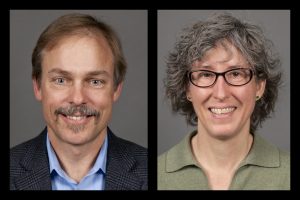Tag: Sustainability
Special Issue of JCE features contributions by Haack, Hutchison & Ginzburg

Chemistry educators from around the world have contributed articles to the Journal of Chemical Education now collected in a special issue on systems thinking, and green and sustainable chemistry.
Papers in the issue are intended to be the inaugural global reference point for literature on systems thinking in chemistry education that will lead to further understanding about the interdependence of the components of systems at work for chemistry learners, and the application of systems thinking to green and sustainable chemistry education.
Guest Editors for the issue were Peter G. Mahaffy, Felix M. Ho, Julie A. Haack, and Edward J. Brush. The issue contains the following contributions authored by UO Chemistry and Biochemistry faculty Julie Haack and Jim Hutchison, and alumna Aurora Ginzburg, PhD Class of 2019:
Can Chemistry Be a Central Science without Systems Thinking?
Authors – Peter G. Mahaffy, Felix M. Ho, Julie A. Haack, Edward J. Brush
Cite this: J. Chem. Educ. 2019, 96, 12, 2679-2681
Publication Date: December 10, 2019
Copyright © 2019 American Chemical Society and Division of Chemical Education, Inc.
Systems Thinking and Green Chemistry: Powerful Levers for Curricular Change and Adoption
Author: James E. Hutchison
Journal of Chemical Education (2019), 96, 12, 2777-2783
Experiential Learning To Promote Systems Thinking in Chemistry: Evaluating and Designing Sustainable Products in a Polymer Immersion Lab
Authors: Aurora L. Ginzburg, Casey E. Check, Demetri P. Hovekamp, Alyson N. Sillin, Jack Brett, Hannah Eshelman, James E. Hutchison*
Journal of Chemical Education (2019), 96, 12, 2863-2871 (Article)Subscribed Access Continue reading “Special Issue of JCE features contributions by Haack, Hutchison & Ginzburg”
New Company has Roots in 2017 UO Sustainable Invention Immersion Week
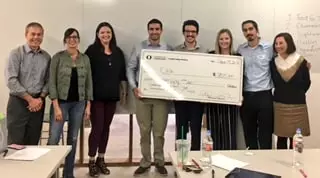
A team from the 2017 Sustainable Invention Immersion Week (SIIW) has taken the idea they developed at the event to market. The week-long workshop was put on by the UO’s chemistry, product design, journalism and business departments, and co-organized by UO Chemistry and Biochemistry faculty Julie Haack.
Read more in the Daily Emerald:
Local startup AlgoteK creates dissolving plastic
UO’s Sustainable Invention Immersion Week – July 7 – July 12, 2018
Sustainable Invention Immersion Week is a collaborative program sponsored by the University of Oregon’s Lundquist Center for Entrepreneurship and the Tyler Invention Greenhouse with partners from the School of Journalism and Communication, the Department of Chemistry and Biochemistry, and the College of Design. UO Chemistry and Biochemistry’s Julie Haack is a Program Director and Faculty Facilitator for the event.
Sustainability Event in Bend Features Julie Haack and Jim Hutchison
UO Chemistry and Biochemistry faculty Julie Haack and Jim Hutchison will participate in a panel discussion titled “Disruptive Strategies for Product Innovation” on May 10, 2018 at the Oxford Hotel in Bend, Oregon.
The participating educators, scientists, and engineers who will seek to inspire the audience to consider new strategies for product design at the nexus of disruptive innovation, materials selection, and systems thinking that maximize product performance and minimize impacts.
Read more at bit.ly/2rwRk81
1st Annual Sustainable Invention Immersion Week
The Phil and Penny Knight Campus for Accelerating Scientific Impact may not have broken ground yet, but its impact got a jump start by sponsoring five, $500 Knight Campus Student Innovation Fellowships for underrepresented students in STEM disciplines who participated in the Sustainable Invention workshop that kicked off the 2017-18 academic year.
One chemistry graduate student and two undergrads were among the five fellowship recipients: Genevieve Dorrell (undergrad, biochemistry), Carl Hartzell (post bac, physics), Ruth Maust (graduate student, chemistry), Makenna Pennel (undergrad, chemistry, honors college) and Pallavi Webb (undergrad, CIS). The fellowship funds could be used to offset academic expenses such as tuition, books, school supplies and travel to scientific meetings.
The week-long workshop, titled Sustainable Invention Immersion Week, took place September 10-15th at 942 Olive Street, the UO’s innovation hub in downtown Eugene. Participating students had the opportunity to learn from experts in design, business, chemistry and communication as they worked in interdisciplinary teams to create their own green product over the course of the event. The teams then pitched their product ideas to win funding to move their idea forward. Awards were given for the top four product ideas.
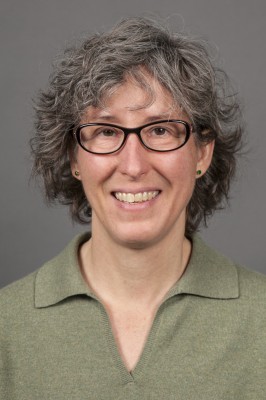
The workshop was organized by professor Julie Haack, the assistant department head of the UO’s Department of Chemistry and Biochemistry, and Kate Harmon, the undergraduate program manager and management instructor at the Lundquist Center for Entrepreneurship. Their goal is for Sustainable Invention Immersion Week to become an annual event, with a changing theme that will be tied to what’s happening at the Knight Campus.
Read more in AroundtheO or visit the event website: http://www.sustainableinvention.com
Julie Haack Authors Article on Innovation & Sustainability at UO’s 942 Olive St. Hub
Read UO Chemistry and Biochemistry faculty Julie Haack‘s post on ACS Green Chemistry: The Nexus Blog:
Ready, Set, Innovate…Sustainably!
David Tyler Featured in Atlantic Article
UO Chemist David Tyler helps a mom consider the sustainability of her daughter’s dolls for an article in Atlantic.

Professor David Tyler Quoted in Article on California’s Paper-vs.-Plastic Debate
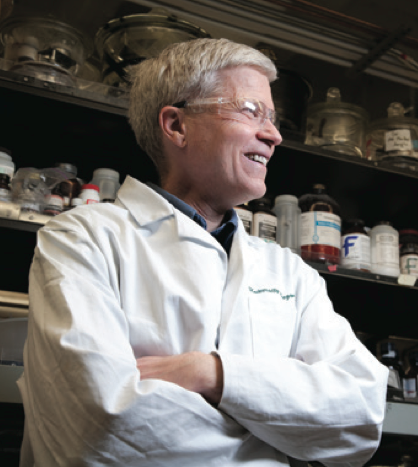
UO Chemistry and Biochemistry faculty David Tyler discusses the sustainability and lifecycle impacts of paper and cotton bags versus plastic in an article on the vote to extend California’s state-wide plastic bag ban.
Read more at http://bit.ly/1JnfXY1
Haack Paper Earns Honor at 2015 Sustainability, Ethics and Entrepreneurship Conference
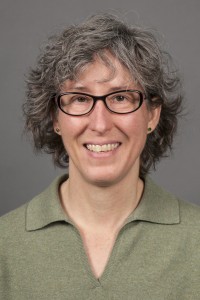
UO Chemistry and Biochemistry faculty Julie Haack is among the authors of the work selected as “Best Paper” at the 2015 Sustainability, Ethics and Entrepreneurship (SEE) Conference held in Denver, Colorado, April 28 – May 1, 2015.
The paper, titled “Insider-Driven Change in Fields of Practice: Exploring the Case of Green Chemistry,” is a collaboration between chemistry and the UO business school. Authors include Jennifer A Howard-Grenville (UO Business), Julie Haack (UO Chemistry), Doug Young (UO PhD Alum, now at LCC), Andrew Earle, and Andrew Nelson (UO Business). It was presented at the conference by Andrew Nelson.
Abstract: Insiders can be effective at mobilizing to bring about change in organizations or professions, yet we know little about how they work to influence change in a less structured field of work practice. Drawing on interview, observational, and archival data, we inductively investigate the emergence and growth of “green chemistry,” an effort within the chemical sciences to improve the health, safety, and environmental impacts of chemicals through changing practices associated with chemical synthesis and design. We find that advocates mobilized other chemists through a multivocal discourse and flexible principles, as opposed to a cohesive resonant frame. A pluralistic community resulted, which demanded ongoing efforts to both check and sustain this pluralism. The trajectory of green chemistry suggests that insiders can leverage the very elements that structure a field – shared expertise and work practices – in service of change, but that these same elements are threatened by such change. We discuss implications for theory on insider- driven change in fields of practice, the strategic use of multivocality, and the challenges of social change among those bound by common expertise, including members of occupations.



